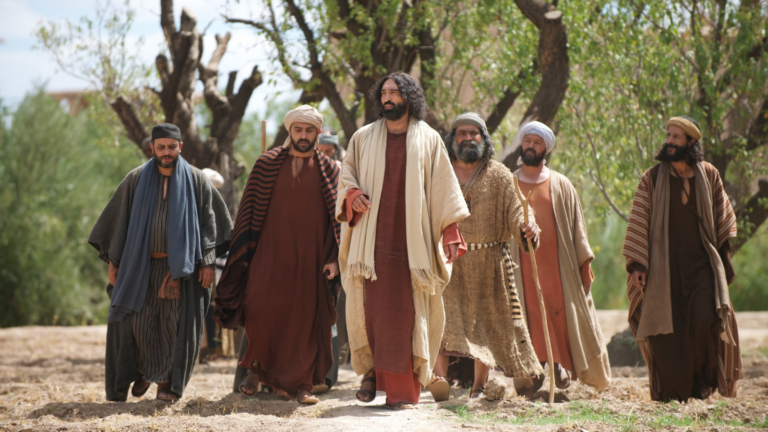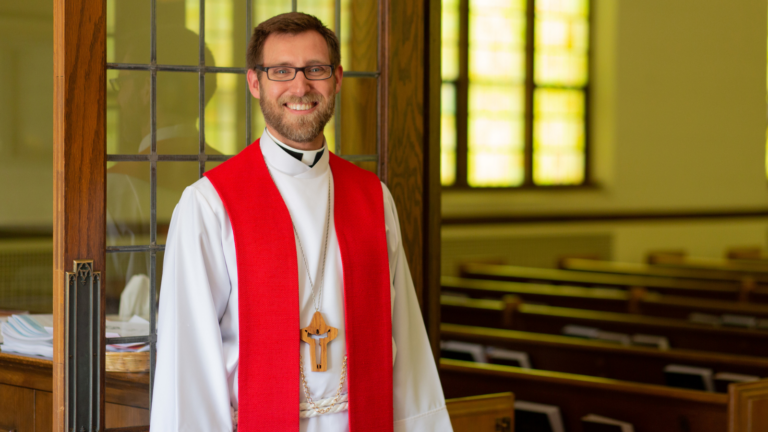Do You Know What Mormons Believe? Here’s 12 Unexpected Beliefs That Will Leave You Speechless
Get ready for a journey into the not-so-known beliefs of Mormons! In this article, we uncover twelve surprising aspects of Mormonism that might amaze you. Whether you’re already familiar with their faith or it’s something new to you, be prepared to be surprised by these unique beliefs that go beyond expectations.
We’ll explore the depths of Mormon theology, shining a light on aspects that are not always in the spotlight. It’s a chance to question what you thought you knew about what Mormons believe!
1. A Living Prophet

Members of The Church of Jesus Christ of Latter-day Saints believe their church is a restoration of the one that Jesus established when He was alive. This restoration includes having living prophets and apostles. Having modern prophets also means there is ongoing communication from God and additional scriptures.
The liveliness of the Mormon faith comes from their belief in a living prophet. The church’s president, besides handling administrative duties, shares current revelations. This helps guide the worldwide community through today’s challenges with insights believed to be from God.
2. The Resurrection of Jesus in America

A lot of what Mormons believe is connected to North and South America. They think the events in the Book of Mormon happened in the western hemisphere, that Jesus appeared in the Americas after coming back to life, and that Joseph Smith brought back the true faith in Upstate New York.
They also believe the Garden of Eden was in North America and that the New Jerusalem will be in Missouri. Some people think this, along with a belief in American exceptionalism, is why Leo Tolstoy called Mormonism the “quintessential ‘American religion.”
3. Eternal Progression

In Mormon teachings, the idea of eternal progression is important. It paints a big picture of life after death, suggesting that people keep growing spiritually. According to this belief, death isn’t the end.
Instead, the soul continues on an endless journey, always learning and becoming more spiritually connected to God. They even believe that humans have the potential to transform into gods and goddesses in the afterlife. They can become leaders of their own celestial kingdoms, have spiritual offspring, and continually gain more power and glory for eternity.
4. Baptism for The Dead

In the LDS Church, someone who is alive gets baptized in water on behalf of someone who has passed away and is of the same gender. This unique baptism for the dead happens only in temples. The idea behind it is that they believe baptism is necessary for entering the Kingdom of God.
To show their belief in everyone having a chance at salvation, Mormons practice baptism on behalf of deceased ancestors who didn’t get the opportunity in their own lifetimes. This type of baptism highlights the idea that all people are connected, and the church is dedicated to making sure every soul has a chance at salvation.
5. Cosmology and Exaltation

In Mormon beliefs about the universe, Earth isn’t the only inhabited planet. There are many planets, and each of them has a purpose. That purpose is to help people achieve “immortality and eternal life,” or what they call “exaltation.” According to their teachings, these planets were created by Jehovah, who is believed to be Jesus before he was born on Earth.
Also, in Mormonism, exaltation is the belief that certain individuals will attain the highest level of salvation in the celestial kingdom after death. In this state, they will live forever in God’s presence, maintain family bonds, become gods, shape worlds, and oversee spiritual offspring.
6. Celestial Marriage

Celestial marriage, also known as the New and Everlasting Covenant of Marriage, Temple Marriage, or Eternal Marriage, is the belief that marriages can continue eternally in heaven. This distinctive doctrine is a key tenet of the Church of Jesus Christ of Latter-day Saints (LDS Church) and various Mormon fundamentalist groups.
Mormons see marriage as something really special. Instead of the usual “till death do us part” idea, they believe in marriages lasting forever. These long-lasting connections, made in the temple, mean that families stick together even after this life, showing that family can be together forever.
7. Three Levels of Heaven

In Latter-day Saint teachings, the scriptures talk about three different stages of life after death. These stages are the celestial kingdom, the terrestrial kingdom, and the telestial kingdom.
Mormons have a clear and detailed idea of heaven with three separate levels. These levels show how devoted someone was to being good on Earth, giving a more detailed view of life after death than just thinking about heaven and hell.
8. The Word of Wisdom

Mormons believe that God has given the Word of Wisdom as a rule for the well-being of both the body and the spirit of His children. The Prophet Joseph Smith got this guidance on February 27, 1833, and it’s written in Section 89 of the Doctrine and Covenants. In this message, the Lord teaches healthy lifestyle practices.
In Mormon teachings, there’s a close link between physical health and spiritual well-being. The Word of Wisdom acts as a guide for a healthy life, recommending against alcohol, tobacco, and certain caffeinated drinks. Following these recommendations helps believers maintain a pure, temple-like condition in their bodies.
9. Personal Revelation

In Mormon beliefs, God doesn’t just communicate through old scriptures. They believe people can receive personal messages that are meant just for them. This idea encourages believers to connect directly with God, helping them build a close and ever-changing relationship with the divine.
Even though Latter Day Saints think personal revelations are crucial in their salvation plan, church leaders stress that genuine personal insights should never go against the official teachings given by the church leadership.
10. Temple Undergarments

For members of the Mormon church, the simple temple garment concealed beneath everyday attire and the symbolic attire worn during temple ceremonies symbolize the intimate and personal aspect of their connection with God.
These garments go beyond being a mere symbol of loyalty and serve as a form of spiritual protection, emphasizing the close bond between the individual and God.
11. The Urim and Thummim

People from different faiths have always found historical artifacts fascinating. For Mormons, one such special artifact is the Urim and Thummim. Joseph Smith is believed to have used these objects to translate the Book of Mormon.
They act as a bridge connecting ancient prophecies with the modern revelations that shape Mormon beliefs. Exploring the story behind the Urim and Thummim gives us a unique look into how historical artifacts, religious translations, and Mormon beliefs all come together.
12. The Lost Tribes of Israel

In Mormon beliefs about the end times, there’s a strong idea that the lost tribes of Israel, who were scattered long ago, will eventually come together again.
This gathering is considered a significant event with deep implications, marking the lead-up to the second coming of Christ. It’s a belief that holds historical importance and plays a crucial role in shaping how Mormons see future events in their faith.
Things Christians Wish Non-Christians Knew About Their Faith

Christianity, a globally practiced faith, holds profound significance for its followers. It can also be misunderstood by those who do not practice Christianity, which can harbor some frustrations for practicing Christians.
Recently, on a popular social media page, we found some things Christians wish non-Christians knew about their faith.
Things Christians Wish Non-Christians Knew About Their Faith
Skipped Church Today? Why Christians are Opting Out of Regular Sunday Services

Did you make it to Sunday church this morning? If not, you’re not alone.
A recent Lifeway Research study identified some common reasons why Christians are skipping church these days — and some of the reasons might be surprising.
Hebrews 10:24-25 tells us, “And let us consider how we may spur one another on toward love and good deeds, not giving up meeting together, as some are in the habit of doing, but encouraging one another—and all the more as you see the Day approaching.”
Yet, for these Christians, there are several very good reasons why they might miss any given Sunday morning.
Skipped Church Today? Why Christians are Opting Out of Regular Sunday Services
So Irritating! These 12 Statements Made By Non-Christians Are Really Offensive

In our diverse world, respectful dialogue among different belief systems is essential for harmony.
Let’s dive into some statements made by non-Christians that can sometimes offend Christians, even if not on purpose. It highlights the importance of fostering empathy and understanding to promote a more inclusive society.
So Irritating! These 12 Statements Made By Non-Christians Are Really Offensive
Whoops! 12 Christian Convictions that Drive Non-Christians Bananas

In a world where people have different beliefs and ways of life, it’s important to talk and understand each other. Christians have their own particular beliefs, but sometimes these ideas can make non-Christians scratch their heads or feel a bit uneasy.
We’re not here to judge, but to help everyone understand each other better. Let’s have open and respectful conversations to bridge the gap between different perspectives.
With that being said… Let’s take a look at some common Christian opinions or beliefs that might make non-Christians upset.
They may not be what you think…
Whoops! 12 Christian Convictions that Drive Non-Christians Bananas
Oops! These 10 Popular Bible Verses Don’t Mean What You Think

The Bible is full of inspirational verses that can encourage us, lift us up, and remind us of God’s goodness.
Yet, just because a verse sounds encouraging doesn’t mean that’s the way the original author meant his or her words to be understood.
Here are 10 popular Bible verses people love to take out of context, completely distorting their original meaning in the process.
Oops! These 10 Popular Bible Verses Don’t Mean What You Think






